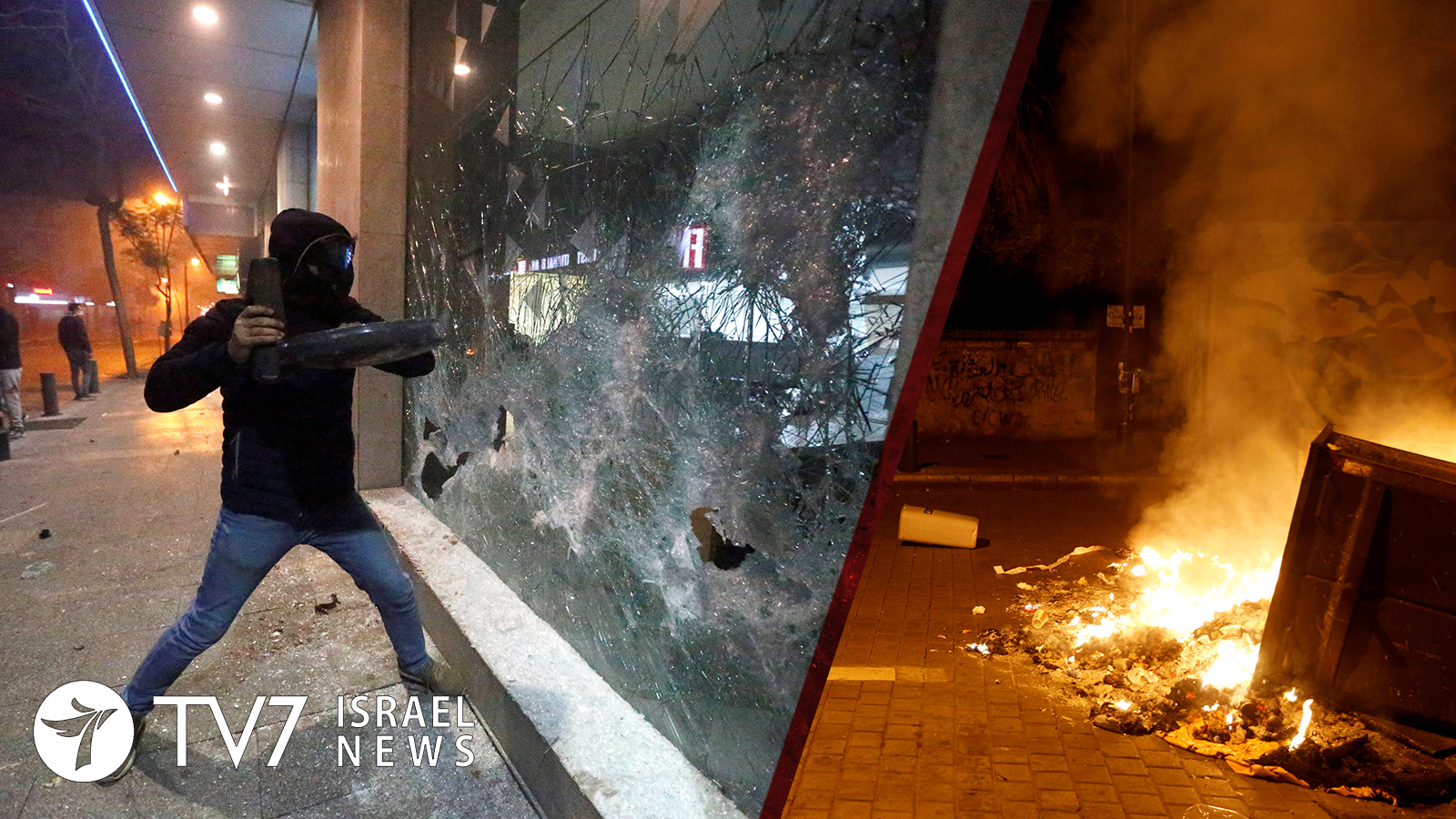Demonstrations in Lebanon turned violent for a second night on Wednesday, with dozens injured after Lebanese security forces used batons and tear gas to forcefully break up protests. Riots broke out in Beirut’s Hamra area the previous night, when banks were targeted by a population enraged over an economy in free fall. Bank facades and ATMs were smashed as stones were hurled at police and military personnel. With banks tightly limiting access to cash, lenders in Beirut’s Hamra district were the object of attacks.
The main thoroughfare in central Beirut was closed briefly on Wednesday afternoon after it was set ablaze by angry protesters. Other demonstrators threw rocks and shot fireworks outside a Beirut police station last night, following the continued detention of some of the 50 people who were arrested on Tuesday where some demonstrators were being detained from Tuesday. Shopfronts in a popular neighborhood in the capital were also reportedly vandalized.
Nearly 100 people are estimated to have been injured in the violent clashes. Reuters footage also shows security forces firing live rounds into the air. Security forces injured a Reuters video journalist who was treated in hospital and released, as well as cameramen working for the Lebanese broadcasters Al Jadeed and MTV.
Caretaker-Interior Minister Raya al-Hassan issued a statement saying the government “does not accept the attack of journalists who are doing their duty to cover events and developments,” but went on to declare “nor do we accept the attack of security forces which are maintaining security.”
The wave of predominantly peaceful protests against the country’s ruling elite prompted the resignation of Prime Minister Saad al-Hariri October 29, which further deepened an already-existent economic crisis due to what is widely being blamed on bad governance. In the interim, efforts to formulate an economic rescue plan or agree on a new government have failed.
Political rivalries have obstructed agreement to appoint a new cabinet, concurrent with a 50% loss in value of the Lebanese pound.
Outrage over banking restrictions, including limits on customers access to their accounts and the blocking of most monetary transfers abroad for more than two months, have fueled fights and violence at branch offices.
Looking to assure anxious depositors, Parliament Speaker Nabih Berri announced that efforts are being taken to safeguard people’s savings, particularly smaller accounts and those belonging to expatriates, without providing details over any specific actions.
The United Nations Special Coordinator for Lebanon Jan Kubis outspokenly criticized Lebanese officials of standing by to simply watch the collapse of the national economy instead of acting to resolving the crisis. “Another day of confusion around the formation of a government, amidst the increasingly angry protests and free-falling economy,” Kubis tweeted on Wednesday, underscoring “Politicians, don’t blame the people, blame yourselves for this dangerous chaos.”
